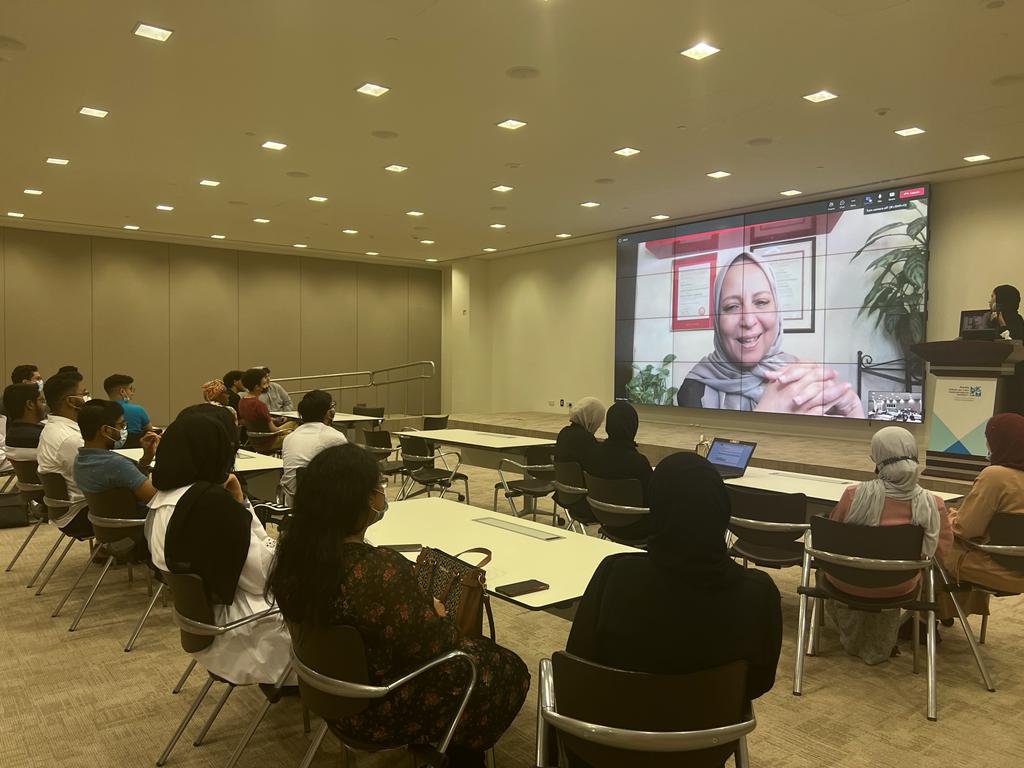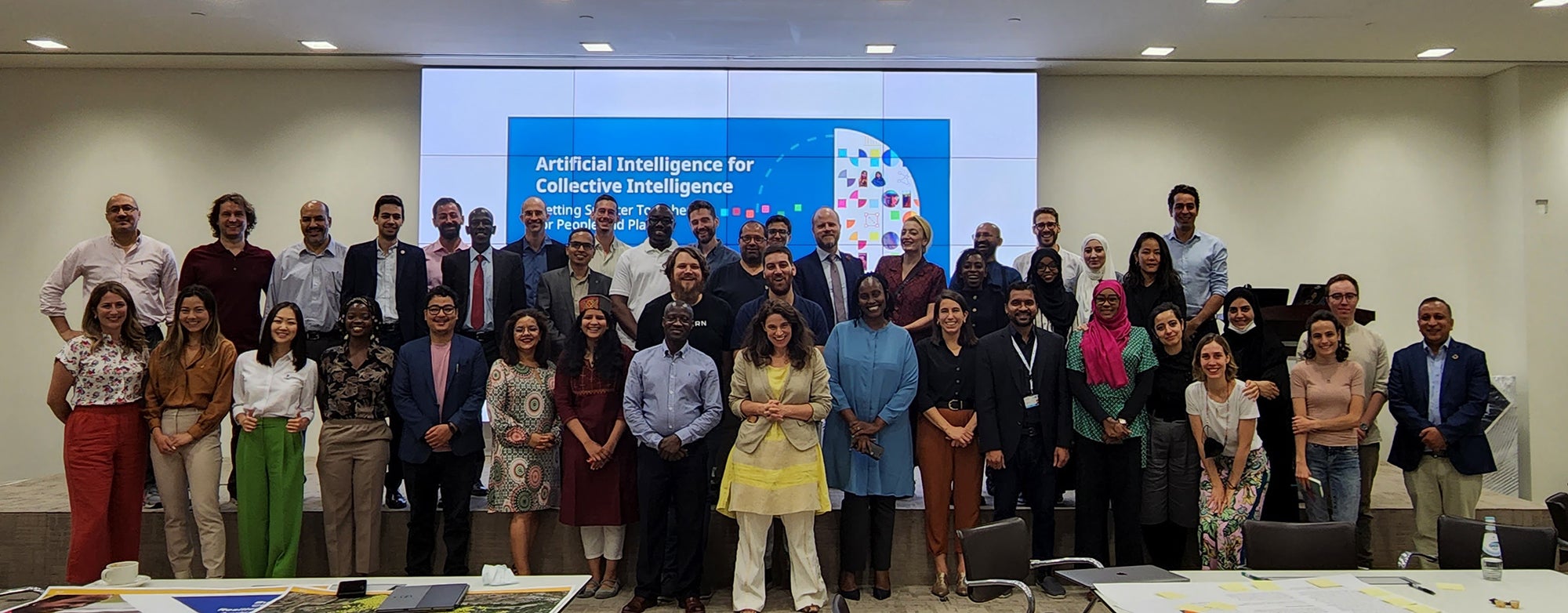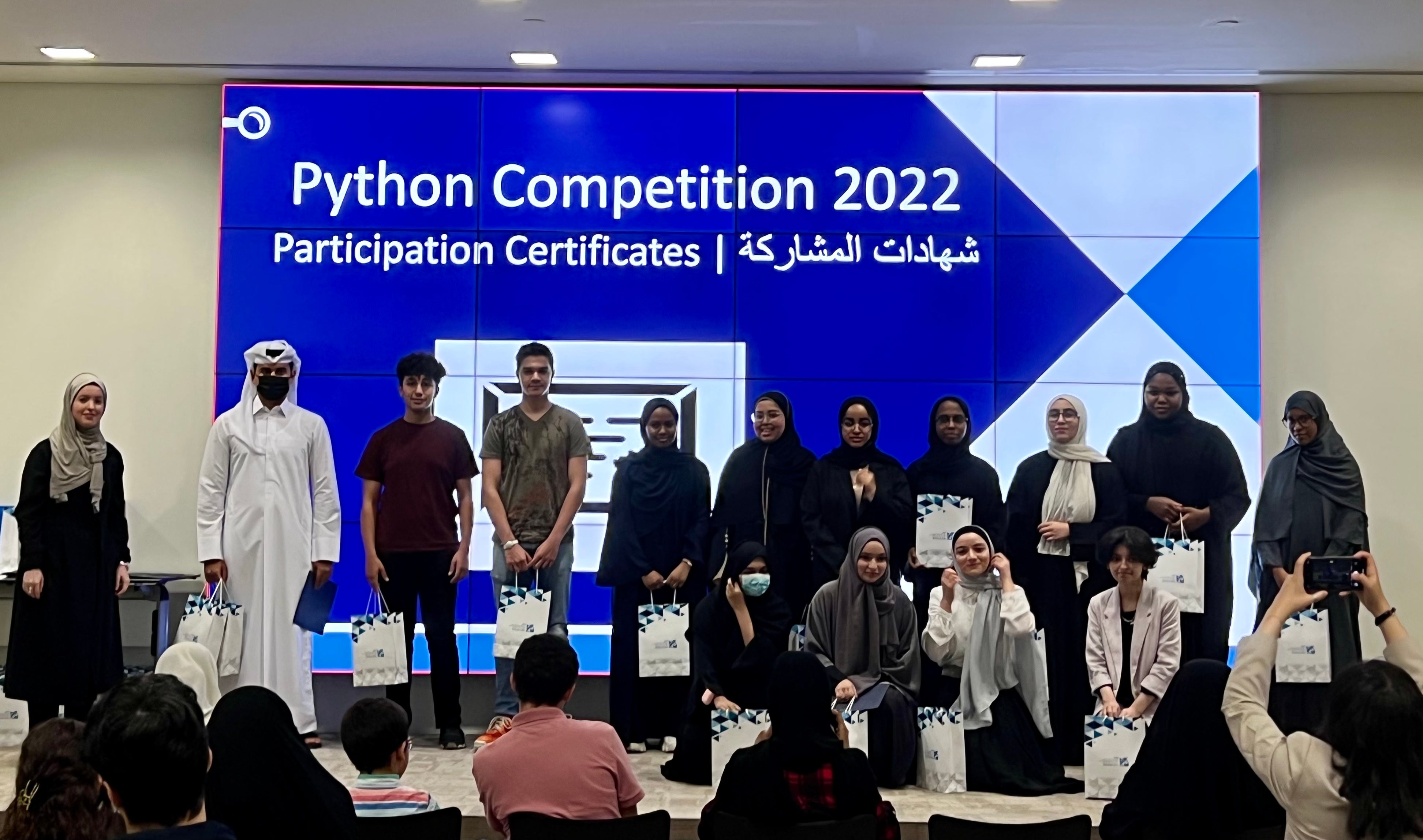
How AI is Driving Innovation to Produce an Enhanced Educational Experience
Qatar Computing Research Institute is leveraging artificial intelligence and machine learning for progressive education at Hamad Bin Khalifa University
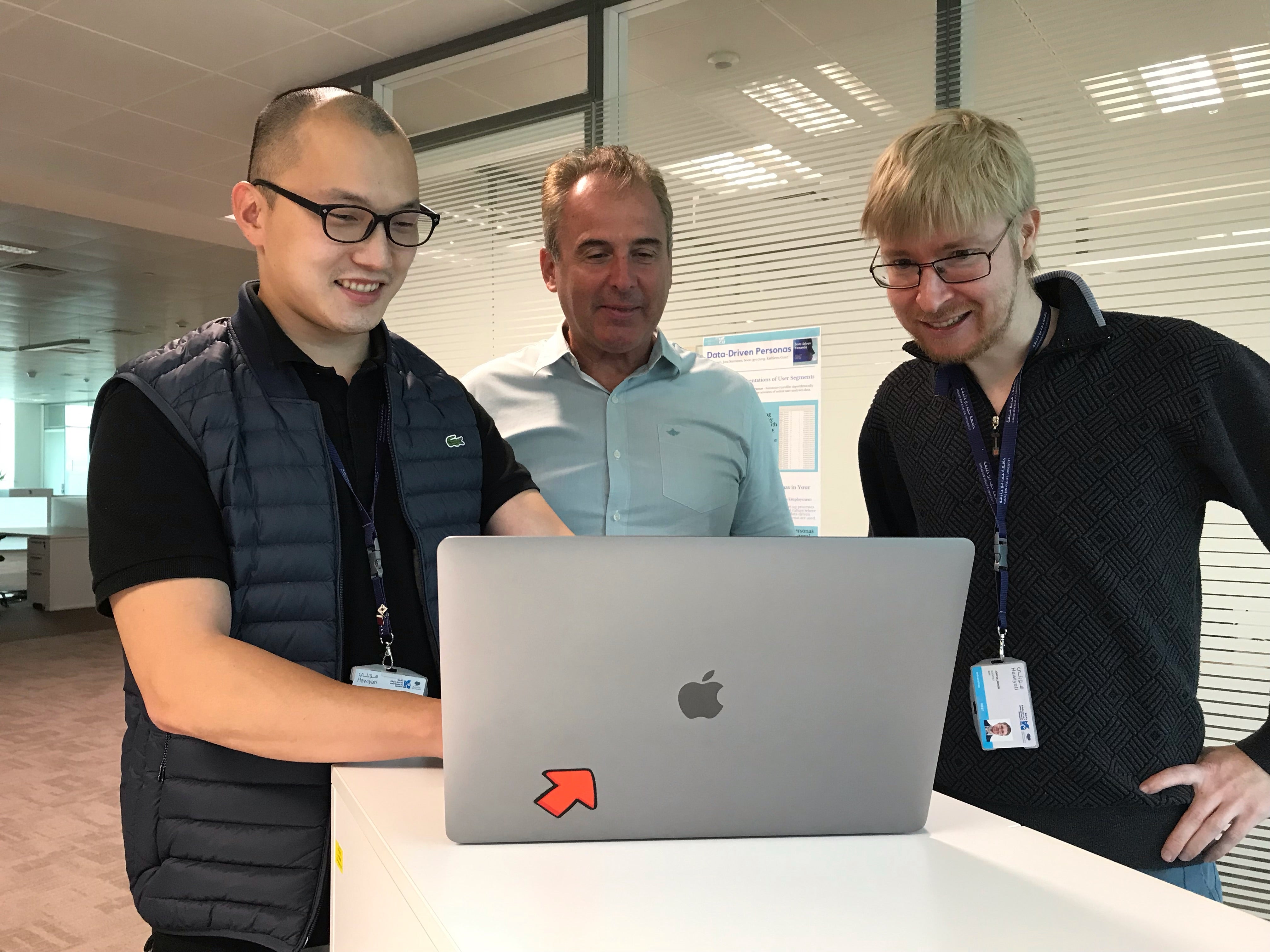
Artificial Intelligence (AI) mimics human intelligence processes in algorithmic services that optimize processes, improve speed, and increase efficiency via learning, self-correction, and reasoning.
AI and machine learning (ML) are key drivers of innovation across many industries, including education. AI holds the promise of evolving the education sector by optimizing both learning and teaching for students and teachers alike.
One such area is ‘progressive education’, which includes initiatives focusing on experiential learning based on the student talents, needs, and desires to accomplish the educational goals of both the teacher and the student.
“AI and ML are tools for helping educational organizations achieve progressive education goals. These tools include adaptive learning systems, virtual reality, augmented reality, and gamification,” said Dr. Jim Jansen, a Principal Scientist at Qatar Computing Research Institute (QCRI), part of Hamad Bin Khalifa University (HBKU).
“You can already see these AI systems gaining ground and having a positive effect in the education sector,” he said, where AI is impacting progressive education by providing greater levels of individualized and personalized learning for students.
QCRI has established itself as a thought leader in the use of AI in areas of computing research and is playing a major role in developing and promoting the use of cutting-edge AI innovation in Qatar.
Indeed, QCRI’s blueprint was accepted as the country’s national AI strategy in 2019, and to support progressive education at HBKU, its researchers have developed a system called Survey2Persona.
The system personifies survey data for targetable, actionable, and communicable insights of students, faculty, staff, and alumni. Survey2Persona, like AI technologies in general, holds the potential to radically change how educational institutions interact with prospective, current, and former students, as well as the staff and faculty charged with educating these students.
Systems such as Survey2Persona can aid organizations in multiple educational tasks, from recruiting to planning new course offerings to preparing students for the changing job market. These AI services can tailor the entire educational experience more closely to both student needs and educational goals.
“Survey2Persona is an AI and ML technologies-based tool. It transforms survey data into actionable insights without requiring knowledge of statistics from the user,” stated Soon-gyo Jung, Software Engineer, QCRI, who is responsible for the system’s development.
AI has already impacted student learning and the way educational content is delivered. Massive online educational service platforms, such as Khan Academy, for example, can leverage adaptive AI technologies to deliver content suited to various learning styles and learning gaps of students. These AI learning systems respond to student needs, emphasize specific topics based on students’ progress, repeat lessons until students have mastered them, and allow students to work at their own pace to truly master a topic. These AI technologies take content curated by teaching subject matter experts and shift content delivery from the teacher to the student.
These large educational platforms also facilitate the teaching of AI and ML, resulting in significant advancements in the learning and educating happening in these areas. Kaggle and PyCaret, for example, have communities numbering in the hundreds of thousands.
“These online communities are instrumental to progressive education and a new way of learning that is less dependent on textbooks and more dependent on living and developing educational materials, such as computational notebooks,” said Joni Salminen, a Scientist at QCRI.
In this regard, AI, combined with the delivery of content at scale within a progressive education paradigm, is changing (and has already changed) how people interact with educational information, especially in the context of life-long learning. One such area is smart content generation, where AI programs automatically update classroom content, such as digital textbooks, digital study guides, and digital content interfaces.
AI can also help increase universal access to education with global online learning communities, including delivering content in different languages and for different skill levels while enabling a greater degree of peer support among the learners.
Several AI and ML tools are already integrated into standard classroom software, such as Presentation Translator for PowerPoint that does simultaneous voice-to-text translations in multiple languages in real-time. These auto-translation tools help deliver content to a broader audience of students and professionals seeking to develop their skills and knowledge. There is a lengthy list of other content visualization and simulation efforts powered by AI entering the marketplace.
So, it is no longer a question of ‘if’ AI will impact education, but ‘how’ and ‘when’.
As with any of the prior educational techniques, the focus of the use of AI must be what can contribute to good teaching and learning. “The only sure thing is that we currently live in an era of unparalleled access to information and the ability to leverage that information with AI. That combination holds tremendous opportunities for the future of education,” said Dr. Jansen.
Related News
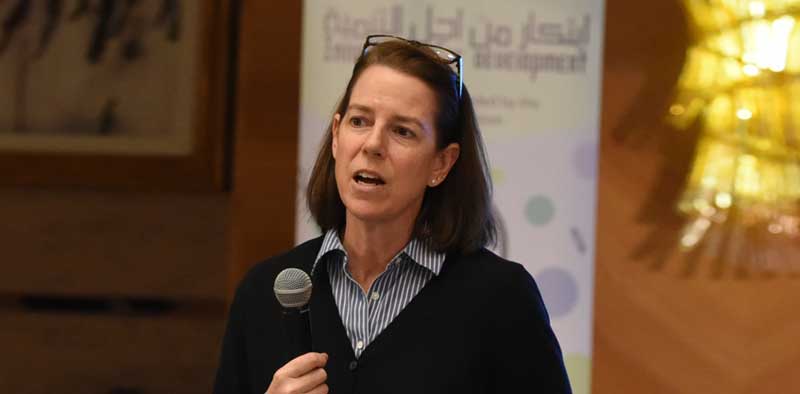
QCRI and UNDP to Host Workshop on Artificial Intelligence as Tool for Social Good

Qatar Computing Research Institute Achieves Milestone with its QARTA Street Map Routing Engine
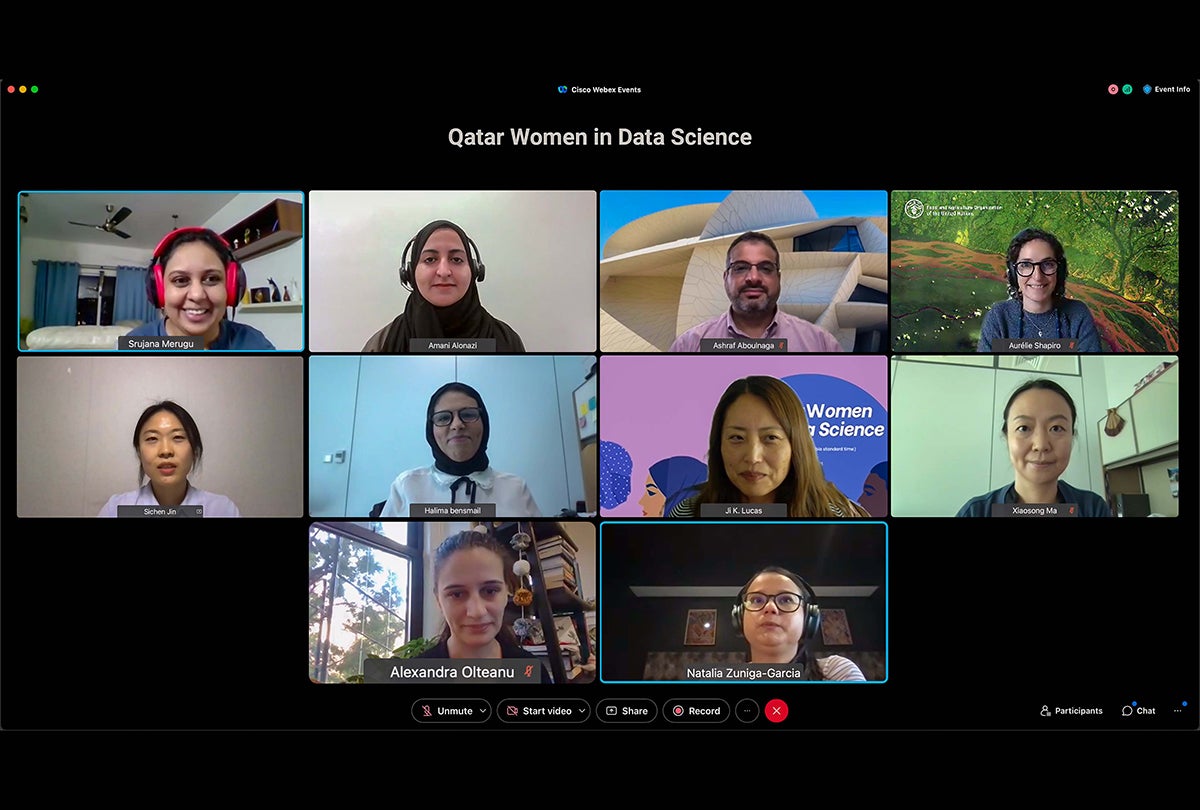
Women Leading in Data Science Inspire Push for Diversity at HBKU’s Qatar Computing Research Institute Workshop
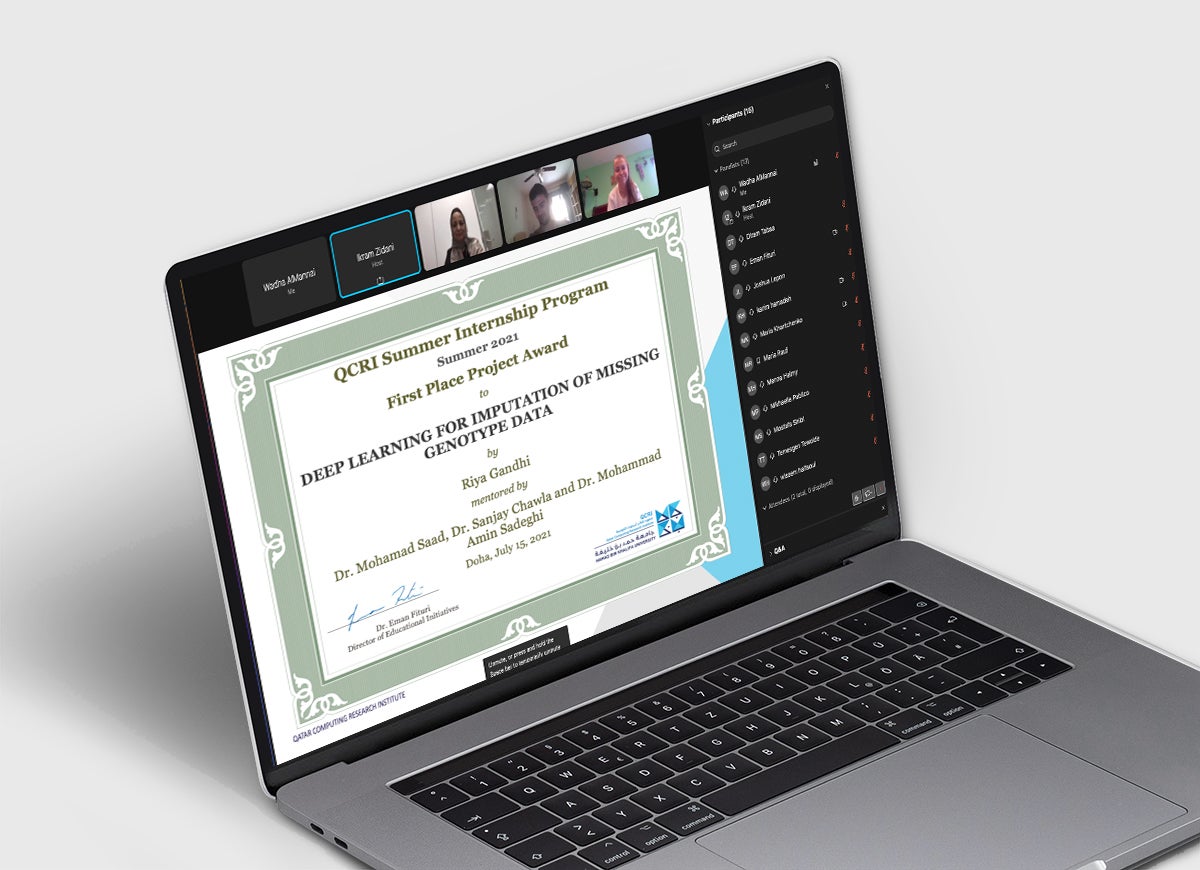
Qatar Computing Research Institute Provides Intensive Training During Summer Online Internship Program

Qatar Computing Research Institute AI Review Tool Rayyan Now Part of US-Based Startup
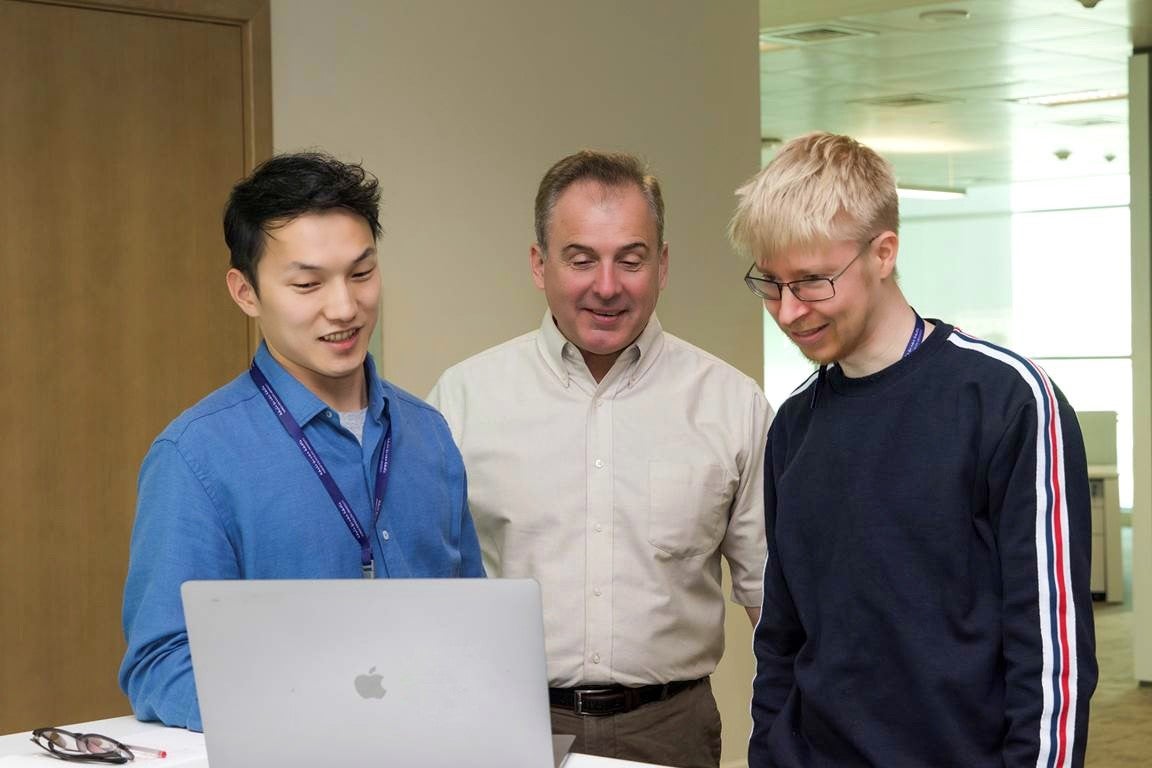
HBKU’s Qatar Computing Research Institute Awarded Prestigious Facebook Grant for Project on Privacy Personas
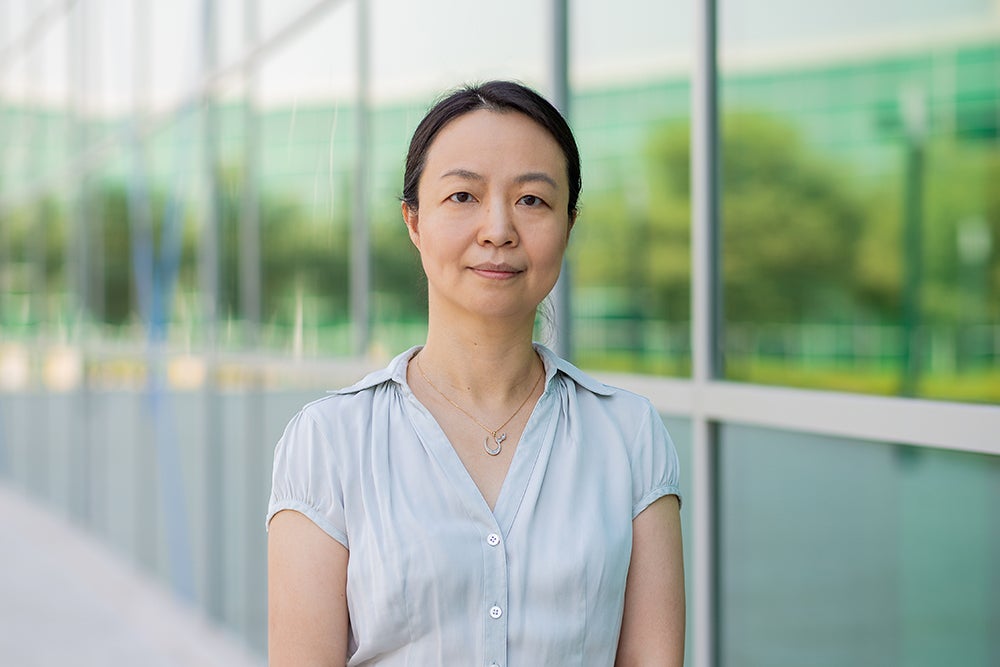
HBKU’s Qatar Computing Research Institute Scientist Named 2020 ACM Distinguished Member

QCRI and UNDP to Host Workshop on Artificial Intelligence as Tool for Social Good

Qatar Computing Research Institute Achieves Milestone with its QARTA Street Map Routing Engine

Women Leading in Data Science Inspire Push for Diversity at HBKU’s Qatar Computing Research Institute Workshop

Qatar Computing Research Institute Provides Intensive Training During Summer Online Internship Program

Qatar Computing Research Institute AI Review Tool Rayyan Now Part of US-Based Startup

HBKU’s Qatar Computing Research Institute Awarded Prestigious Facebook Grant for Project on Privacy Personas

HBKU’s Qatar Computing Research Institute Scientist Named 2020 ACM Distinguished Member

QCRI and UNDP to Host Workshop on Artificial Intelligence as Tool for Social Good

Qatar Computing Research Institute Achieves Milestone with its QARTA Street Map Routing Engine

Women Leading in Data Science Inspire Push for Diversity at HBKU’s Qatar Computing Research Institute Workshop

Qatar Computing Research Institute Provides Intensive Training During Summer Online Internship Program

Qatar Computing Research Institute AI Review Tool Rayyan Now Part of US-Based Startup

HBKU’s Qatar Computing Research Institute Awarded Prestigious Facebook Grant for Project on Privacy Personas

HBKU’s Qatar Computing Research Institute Scientist Named 2020 ACM Distinguished Member

QCRI and UNDP to Host Workshop on Artificial Intelligence as Tool for Social Good

Qatar Computing Research Institute Achieves Milestone with its QARTA Street Map Routing Engine

Women Leading in Data Science Inspire Push for Diversity at HBKU’s Qatar Computing Research Institute Workshop

Qatar Computing Research Institute Provides Intensive Training During Summer Online Internship Program

Qatar Computing Research Institute AI Review Tool Rayyan Now Part of US-Based Startup

HBKU’s Qatar Computing Research Institute Awarded Prestigious Facebook Grant for Project on Privacy Personas

HBKU’s Qatar Computing Research Institute Scientist Named 2020 ACM Distinguished Member

QCRI and UNDP to Host Workshop on Artificial Intelligence as Tool for Social Good

Qatar Computing Research Institute Achieves Milestone with its QARTA Street Map Routing Engine

Women Leading in Data Science Inspire Push for Diversity at HBKU’s Qatar Computing Research Institute Workshop

Qatar Computing Research Institute Provides Intensive Training During Summer Online Internship Program

Qatar Computing Research Institute AI Review Tool Rayyan Now Part of US-Based Startup

HBKU’s Qatar Computing Research Institute Awarded Prestigious Facebook Grant for Project on Privacy Personas

HBKU’s Qatar Computing Research Institute Scientist Named 2020 ACM Distinguished Member

QCRI and UNDP to Host Workshop on Artificial Intelligence as Tool for Social Good

Qatar Computing Research Institute Achieves Milestone with its QARTA Street Map Routing Engine

Women Leading in Data Science Inspire Push for Diversity at HBKU’s Qatar Computing Research Institute Workshop

Qatar Computing Research Institute Provides Intensive Training During Summer Online Internship Program

Qatar Computing Research Institute AI Review Tool Rayyan Now Part of US-Based Startup

HBKU’s Qatar Computing Research Institute Awarded Prestigious Facebook Grant for Project on Privacy Personas

HBKU’s Qatar Computing Research Institute Scientist Named 2020 ACM Distinguished Member

QCRI and UNDP to Host Workshop on Artificial Intelligence as Tool for Social Good

Qatar Computing Research Institute Achieves Milestone with its QARTA Street Map Routing Engine

Women Leading in Data Science Inspire Push for Diversity at HBKU’s Qatar Computing Research Institute Workshop

Qatar Computing Research Institute Provides Intensive Training During Summer Online Internship Program

Qatar Computing Research Institute AI Review Tool Rayyan Now Part of US-Based Startup

HBKU’s Qatar Computing Research Institute Awarded Prestigious Facebook Grant for Project on Privacy Personas

HBKU’s Qatar Computing Research Institute Scientist Named 2020 ACM Distinguished Member

QCRI and UNDP to Host Workshop on Artificial Intelligence as Tool for Social Good

Qatar Computing Research Institute Achieves Milestone with its QARTA Street Map Routing Engine

Women Leading in Data Science Inspire Push for Diversity at HBKU’s Qatar Computing Research Institute Workshop

Qatar Computing Research Institute Provides Intensive Training During Summer Online Internship Program

Qatar Computing Research Institute AI Review Tool Rayyan Now Part of US-Based Startup

HBKU’s Qatar Computing Research Institute Awarded Prestigious Facebook Grant for Project on Privacy Personas

HBKU’s Qatar Computing Research Institute Scientist Named 2020 ACM Distinguished Member

QCRI and UNDP to Host Workshop on Artificial Intelligence as Tool for Social Good

Qatar Computing Research Institute Achieves Milestone with its QARTA Street Map Routing Engine

Women Leading in Data Science Inspire Push for Diversity at HBKU’s Qatar Computing Research Institute Workshop

Qatar Computing Research Institute Provides Intensive Training During Summer Online Internship Program

Qatar Computing Research Institute AI Review Tool Rayyan Now Part of US-Based Startup

HBKU’s Qatar Computing Research Institute Awarded Prestigious Facebook Grant for Project on Privacy Personas

HBKU’s Qatar Computing Research Institute Scientist Named 2020 ACM Distinguished Member

QCRI and UNDP to Host Workshop on Artificial Intelligence as Tool for Social Good

Qatar Computing Research Institute Achieves Milestone with its QARTA Street Map Routing Engine

Women Leading in Data Science Inspire Push for Diversity at HBKU’s Qatar Computing Research Institute Workshop

Qatar Computing Research Institute Provides Intensive Training During Summer Online Internship Program

Qatar Computing Research Institute AI Review Tool Rayyan Now Part of US-Based Startup

HBKU’s Qatar Computing Research Institute Awarded Prestigious Facebook Grant for Project on Privacy Personas

HBKU’s Qatar Computing Research Institute Scientist Named 2020 ACM Distinguished Member

QCRI and UNDP to Host Workshop on Artificial Intelligence as Tool for Social Good

Qatar Computing Research Institute Achieves Milestone with its QARTA Street Map Routing Engine

Women Leading in Data Science Inspire Push for Diversity at HBKU’s Qatar Computing Research Institute Workshop

Qatar Computing Research Institute Provides Intensive Training During Summer Online Internship Program

Qatar Computing Research Institute AI Review Tool Rayyan Now Part of US-Based Startup

HBKU’s Qatar Computing Research Institute Awarded Prestigious Facebook Grant for Project on Privacy Personas

HBKU’s Qatar Computing Research Institute Scientist Named 2020 ACM Distinguished Member

QCRI and UNDP to Host Workshop on Artificial Intelligence as Tool for Social Good

Qatar Computing Research Institute Achieves Milestone with its QARTA Street Map Routing Engine

Women Leading in Data Science Inspire Push for Diversity at HBKU’s Qatar Computing Research Institute Workshop

Qatar Computing Research Institute Provides Intensive Training During Summer Online Internship Program

Qatar Computing Research Institute AI Review Tool Rayyan Now Part of US-Based Startup

HBKU’s Qatar Computing Research Institute Awarded Prestigious Facebook Grant for Project on Privacy Personas

HBKU’s Qatar Computing Research Institute Scientist Named 2020 ACM Distinguished Member

QCRI and UNDP to Host Workshop on Artificial Intelligence as Tool for Social Good

Qatar Computing Research Institute Achieves Milestone with its QARTA Street Map Routing Engine

Women Leading in Data Science Inspire Push for Diversity at HBKU’s Qatar Computing Research Institute Workshop

Qatar Computing Research Institute Provides Intensive Training During Summer Online Internship Program

Qatar Computing Research Institute AI Review Tool Rayyan Now Part of US-Based Startup

HBKU’s Qatar Computing Research Institute Awarded Prestigious Facebook Grant for Project on Privacy Personas

HBKU’s Qatar Computing Research Institute Scientist Named 2020 ACM Distinguished Member

QCRI and UNDP to Host Workshop on Artificial Intelligence as Tool for Social Good

Qatar Computing Research Institute Achieves Milestone with its QARTA Street Map Routing Engine

Women Leading in Data Science Inspire Push for Diversity at HBKU’s Qatar Computing Research Institute Workshop

Qatar Computing Research Institute Provides Intensive Training During Summer Online Internship Program

Qatar Computing Research Institute AI Review Tool Rayyan Now Part of US-Based Startup

HBKU’s Qatar Computing Research Institute Awarded Prestigious Facebook Grant for Project on Privacy Personas

HBKU’s Qatar Computing Research Institute Scientist Named 2020 ACM Distinguished Member

QCRI and UNDP to Host Workshop on Artificial Intelligence as Tool for Social Good

Qatar Computing Research Institute Achieves Milestone with its QARTA Street Map Routing Engine

Women Leading in Data Science Inspire Push for Diversity at HBKU’s Qatar Computing Research Institute Workshop

Qatar Computing Research Institute Provides Intensive Training During Summer Online Internship Program

Qatar Computing Research Institute AI Review Tool Rayyan Now Part of US-Based Startup

HBKU’s Qatar Computing Research Institute Awarded Prestigious Facebook Grant for Project on Privacy Personas

HBKU’s Qatar Computing Research Institute Scientist Named 2020 ACM Distinguished Member

QCRI and UNDP to Host Workshop on Artificial Intelligence as Tool for Social Good

Qatar Computing Research Institute Achieves Milestone with its QARTA Street Map Routing Engine

Women Leading in Data Science Inspire Push for Diversity at HBKU’s Qatar Computing Research Institute Workshop

Qatar Computing Research Institute Provides Intensive Training During Summer Online Internship Program

Qatar Computing Research Institute AI Review Tool Rayyan Now Part of US-Based Startup

HBKU’s Qatar Computing Research Institute Awarded Prestigious Facebook Grant for Project on Privacy Personas

HBKU’s Qatar Computing Research Institute Scientist Named 2020 ACM Distinguished Member

QCRI and UNDP to Host Workshop on Artificial Intelligence as Tool for Social Good

Qatar Computing Research Institute Achieves Milestone with its QARTA Street Map Routing Engine

Women Leading in Data Science Inspire Push for Diversity at HBKU’s Qatar Computing Research Institute Workshop

Qatar Computing Research Institute Provides Intensive Training During Summer Online Internship Program

Qatar Computing Research Institute AI Review Tool Rayyan Now Part of US-Based Startup

HBKU’s Qatar Computing Research Institute Awarded Prestigious Facebook Grant for Project on Privacy Personas

HBKU’s Qatar Computing Research Institute Scientist Named 2020 ACM Distinguished Member

QCRI and UNDP to Host Workshop on Artificial Intelligence as Tool for Social Good

Qatar Computing Research Institute Achieves Milestone with its QARTA Street Map Routing Engine

Women Leading in Data Science Inspire Push for Diversity at HBKU’s Qatar Computing Research Institute Workshop

Qatar Computing Research Institute Provides Intensive Training During Summer Online Internship Program

Qatar Computing Research Institute AI Review Tool Rayyan Now Part of US-Based Startup

HBKU’s Qatar Computing Research Institute Awarded Prestigious Facebook Grant for Project on Privacy Personas

HBKU’s Qatar Computing Research Institute Scientist Named 2020 ACM Distinguished Member

QCRI and UNDP to Host Workshop on Artificial Intelligence as Tool for Social Good

Qatar Computing Research Institute Achieves Milestone with its QARTA Street Map Routing Engine

Women Leading in Data Science Inspire Push for Diversity at HBKU’s Qatar Computing Research Institute Workshop

Qatar Computing Research Institute Provides Intensive Training During Summer Online Internship Program

Qatar Computing Research Institute AI Review Tool Rayyan Now Part of US-Based Startup

HBKU’s Qatar Computing Research Institute Awarded Prestigious Facebook Grant for Project on Privacy Personas

HBKU’s Qatar Computing Research Institute Scientist Named 2020 ACM Distinguished Member

QCRI and UNDP to Host Workshop on Artificial Intelligence as Tool for Social Good

Qatar Computing Research Institute Achieves Milestone with its QARTA Street Map Routing Engine

Women Leading in Data Science Inspire Push for Diversity at HBKU’s Qatar Computing Research Institute Workshop

Qatar Computing Research Institute Provides Intensive Training During Summer Online Internship Program

Qatar Computing Research Institute AI Review Tool Rayyan Now Part of US-Based Startup

HBKU’s Qatar Computing Research Institute Awarded Prestigious Facebook Grant for Project on Privacy Personas

HBKU’s Qatar Computing Research Institute Scientist Named 2020 ACM Distinguished Member

QCRI and UNDP to Host Workshop on Artificial Intelligence as Tool for Social Good

Qatar Computing Research Institute Achieves Milestone with its QARTA Street Map Routing Engine

Women Leading in Data Science Inspire Push for Diversity at HBKU’s Qatar Computing Research Institute Workshop

Qatar Computing Research Institute Provides Intensive Training During Summer Online Internship Program

Qatar Computing Research Institute AI Review Tool Rayyan Now Part of US-Based Startup

HBKU’s Qatar Computing Research Institute Awarded Prestigious Facebook Grant for Project on Privacy Personas

HBKU’s Qatar Computing Research Institute Scientist Named 2020 ACM Distinguished Member

QCRI and UNDP to Host Workshop on Artificial Intelligence as Tool for Social Good

Qatar Computing Research Institute Achieves Milestone with its QARTA Street Map Routing Engine

Women Leading in Data Science Inspire Push for Diversity at HBKU’s Qatar Computing Research Institute Workshop

Qatar Computing Research Institute Provides Intensive Training During Summer Online Internship Program

Qatar Computing Research Institute AI Review Tool Rayyan Now Part of US-Based Startup

HBKU’s Qatar Computing Research Institute Awarded Prestigious Facebook Grant for Project on Privacy Personas

HBKU’s Qatar Computing Research Institute Scientist Named 2020 ACM Distinguished Member

QCRI and UNDP to Host Workshop on Artificial Intelligence as Tool for Social Good

Qatar Computing Research Institute Achieves Milestone with its QARTA Street Map Routing Engine

Women Leading in Data Science Inspire Push for Diversity at HBKU’s Qatar Computing Research Institute Workshop

Qatar Computing Research Institute Provides Intensive Training During Summer Online Internship Program

Qatar Computing Research Institute AI Review Tool Rayyan Now Part of US-Based Startup

HBKU’s Qatar Computing Research Institute Awarded Prestigious Facebook Grant for Project on Privacy Personas

HBKU’s Qatar Computing Research Institute Scientist Named 2020 ACM Distinguished Member

QCRI and UNDP to Host Workshop on Artificial Intelligence as Tool for Social Good

Qatar Computing Research Institute Achieves Milestone with its QARTA Street Map Routing Engine

Women Leading in Data Science Inspire Push for Diversity at HBKU’s Qatar Computing Research Institute Workshop

Qatar Computing Research Institute Provides Intensive Training During Summer Online Internship Program

Qatar Computing Research Institute AI Review Tool Rayyan Now Part of US-Based Startup

HBKU’s Qatar Computing Research Institute Awarded Prestigious Facebook Grant for Project on Privacy Personas

HBKU’s Qatar Computing Research Institute Scientist Named 2020 ACM Distinguished Member

QCRI and UNDP to Host Workshop on Artificial Intelligence as Tool for Social Good

Qatar Computing Research Institute Achieves Milestone with its QARTA Street Map Routing Engine

Women Leading in Data Science Inspire Push for Diversity at HBKU’s Qatar Computing Research Institute Workshop

Qatar Computing Research Institute Provides Intensive Training During Summer Online Internship Program

Qatar Computing Research Institute AI Review Tool Rayyan Now Part of US-Based Startup

HBKU’s Qatar Computing Research Institute Awarded Prestigious Facebook Grant for Project on Privacy Personas

HBKU’s Qatar Computing Research Institute Scientist Named 2020 ACM Distinguished Member

QCRI and UNDP to Host Workshop on Artificial Intelligence as Tool for Social Good

Qatar Computing Research Institute Achieves Milestone with its QARTA Street Map Routing Engine

Women Leading in Data Science Inspire Push for Diversity at HBKU’s Qatar Computing Research Institute Workshop

Qatar Computing Research Institute Provides Intensive Training During Summer Online Internship Program

Qatar Computing Research Institute AI Review Tool Rayyan Now Part of US-Based Startup

HBKU’s Qatar Computing Research Institute Awarded Prestigious Facebook Grant for Project on Privacy Personas

HBKU’s Qatar Computing Research Institute Scientist Named 2020 ACM Distinguished Member

QCRI and UNDP to Host Workshop on Artificial Intelligence as Tool for Social Good

Qatar Computing Research Institute Achieves Milestone with its QARTA Street Map Routing Engine

Women Leading in Data Science Inspire Push for Diversity at HBKU’s Qatar Computing Research Institute Workshop

Qatar Computing Research Institute Provides Intensive Training During Summer Online Internship Program

Qatar Computing Research Institute AI Review Tool Rayyan Now Part of US-Based Startup

HBKU’s Qatar Computing Research Institute Awarded Prestigious Facebook Grant for Project on Privacy Personas

HBKU’s Qatar Computing Research Institute Scientist Named 2020 ACM Distinguished Member

QCRI and UNDP to Host Workshop on Artificial Intelligence as Tool for Social Good

Qatar Computing Research Institute Achieves Milestone with its QARTA Street Map Routing Engine

Women Leading in Data Science Inspire Push for Diversity at HBKU’s Qatar Computing Research Institute Workshop

Qatar Computing Research Institute Provides Intensive Training During Summer Online Internship Program

Qatar Computing Research Institute AI Review Tool Rayyan Now Part of US-Based Startup

HBKU’s Qatar Computing Research Institute Awarded Prestigious Facebook Grant for Project on Privacy Personas

HBKU’s Qatar Computing Research Institute Scientist Named 2020 ACM Distinguished Member

QCRI and UNDP to Host Workshop on Artificial Intelligence as Tool for Social Good

Qatar Computing Research Institute Achieves Milestone with its QARTA Street Map Routing Engine

Women Leading in Data Science Inspire Push for Diversity at HBKU’s Qatar Computing Research Institute Workshop

Qatar Computing Research Institute Provides Intensive Training During Summer Online Internship Program

Qatar Computing Research Institute AI Review Tool Rayyan Now Part of US-Based Startup

HBKU’s Qatar Computing Research Institute Awarded Prestigious Facebook Grant for Project on Privacy Personas

HBKU’s Qatar Computing Research Institute Scientist Named 2020 ACM Distinguished Member

QCRI and UNDP to Host Workshop on Artificial Intelligence as Tool for Social Good

Qatar Computing Research Institute Achieves Milestone with its QARTA Street Map Routing Engine

Women Leading in Data Science Inspire Push for Diversity at HBKU’s Qatar Computing Research Institute Workshop

Qatar Computing Research Institute Provides Intensive Training During Summer Online Internship Program

Qatar Computing Research Institute AI Review Tool Rayyan Now Part of US-Based Startup

HBKU’s Qatar Computing Research Institute Awarded Prestigious Facebook Grant for Project on Privacy Personas

HBKU’s Qatar Computing Research Institute Scientist Named 2020 ACM Distinguished Member









